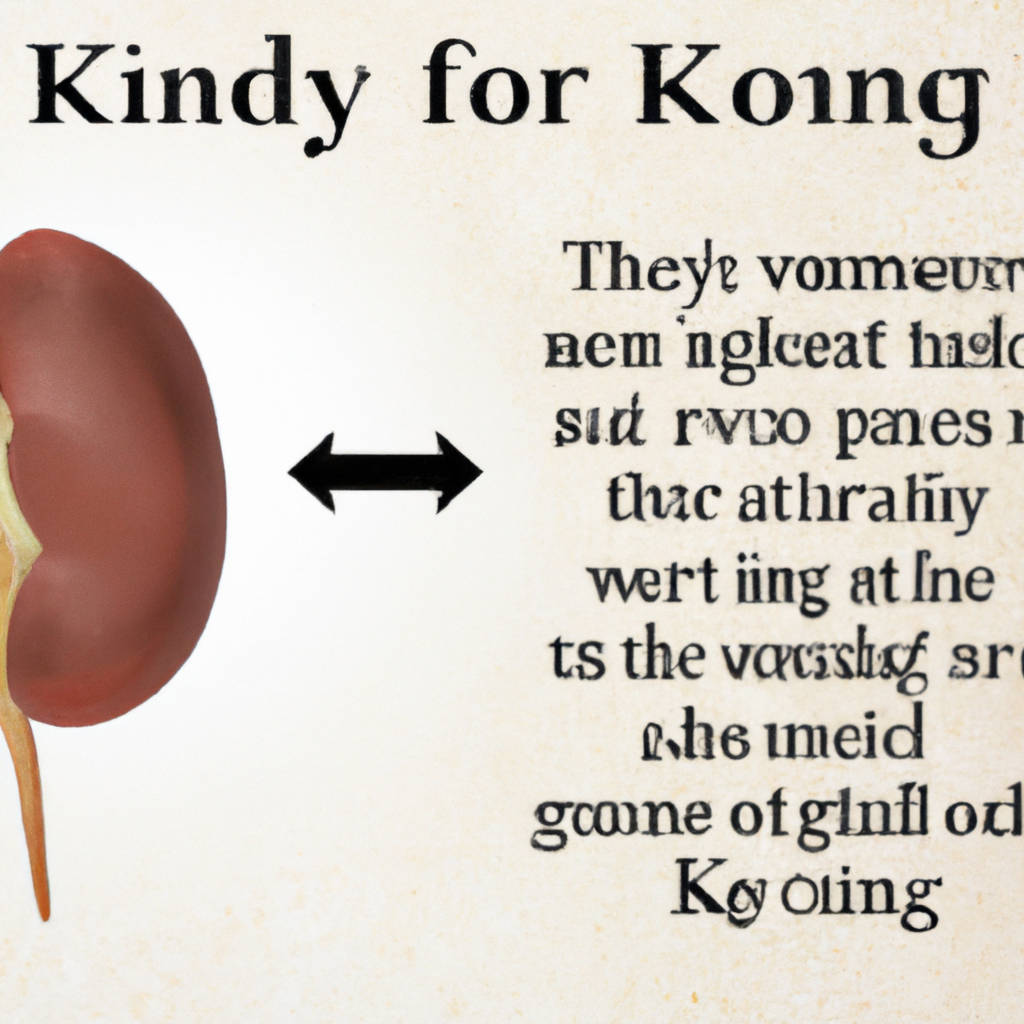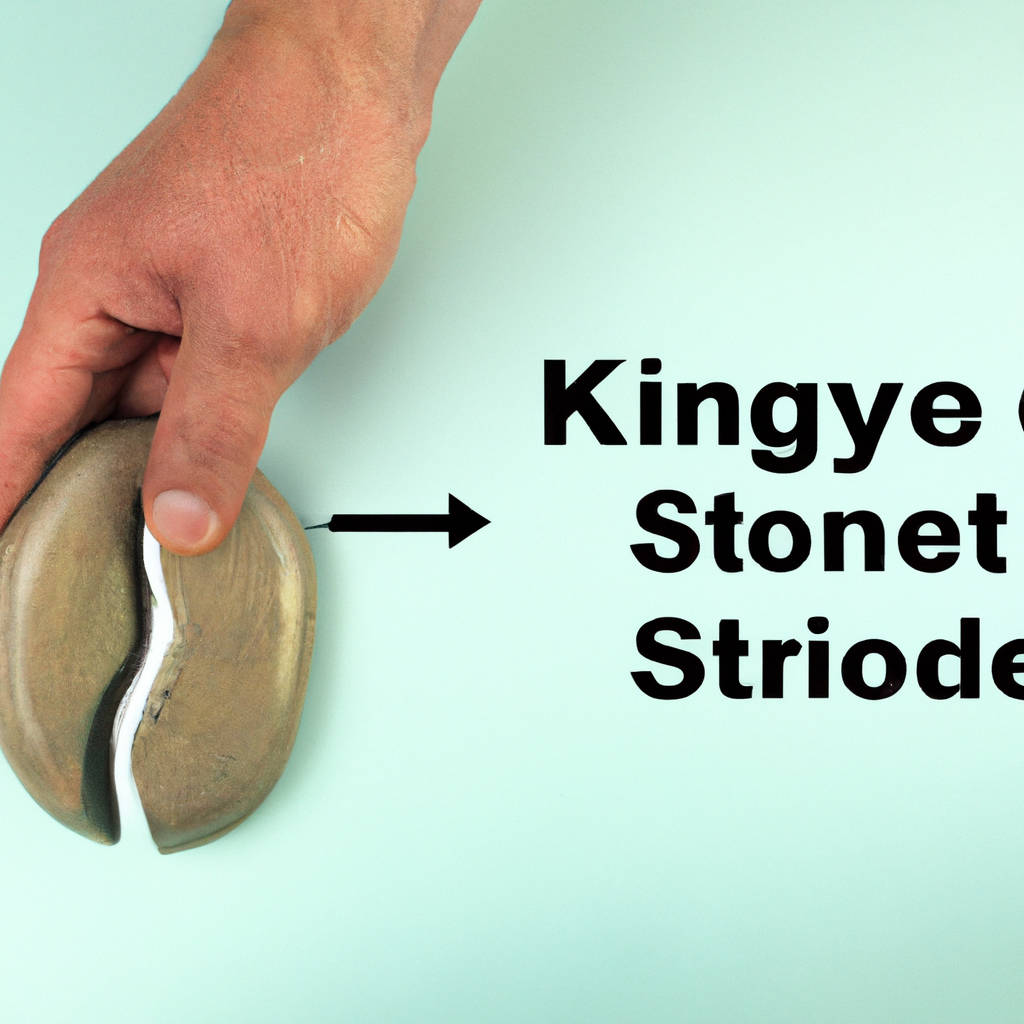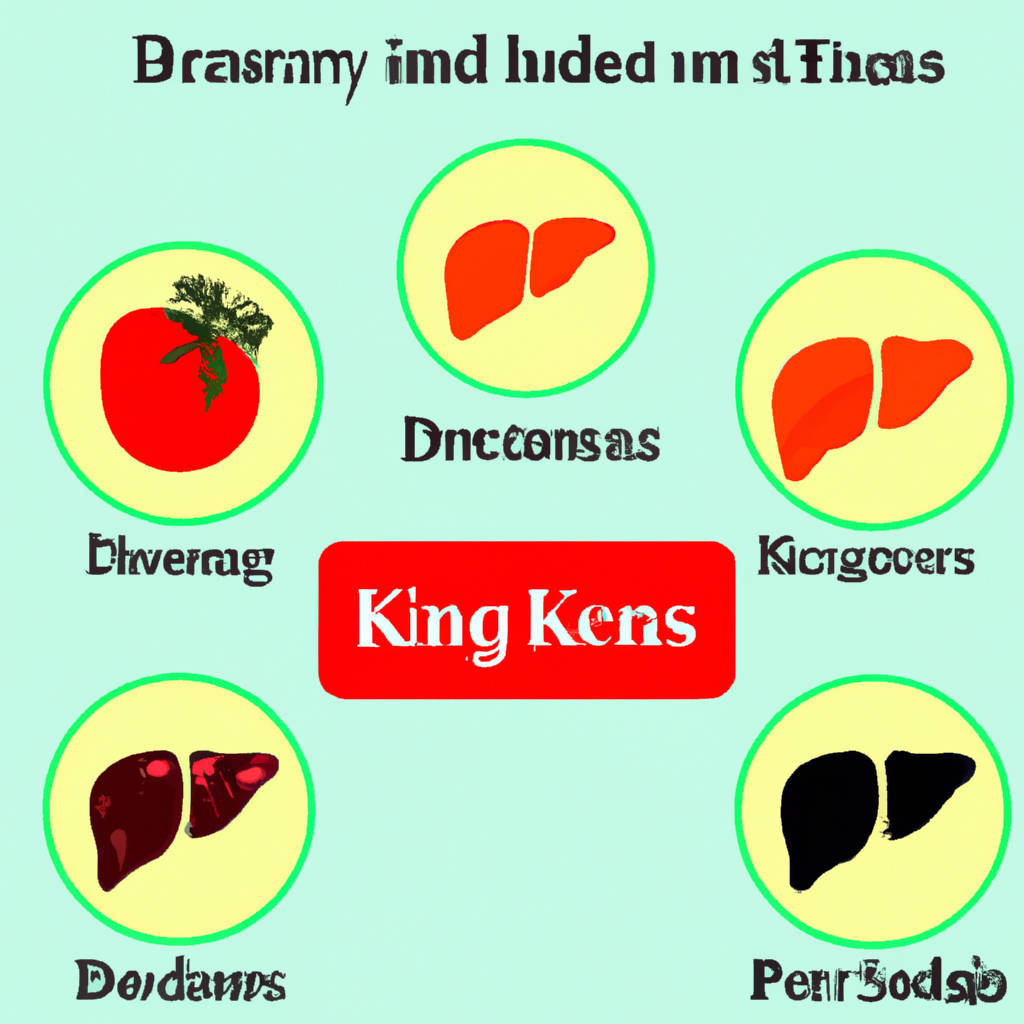Passing a kidney stone can be an incredibly painful and uncomfortable experience. However, there are several tips that can help provide relief and aid in the recovery process. One of the most important things to do is to stay hydrated. Drinking plenty of water can help flush out the kidney stone and reduce the risk of further complications. It is also important to avoid foods and drinks that can exacerbate the pain, such as caffeine, alcohol, and foods high in oxalates.
In addition, taking over-the-counter pain medication can help alleviate some of the discomfort associated with passing a kidney stone. Applying heat to the affected area can also provide relief and help relax the muscles, making it easier for the stone to pass. In some cases, a doctor may prescribe medication to help relax the muscles in the urinary tract and assist in passing the stone. It is important to follow the doctor’s instructions and take the medication as directed.
In more severe cases, medical intervention may be necessary to remove the stone. This can include procedures such as lithotripsy, where shock waves are used to break up the stone, or surgery to remove the stone. Recovery from passing a kidney stone can take time, but with proper care and attention, most people are able to recover fully and resume their normal activities.

Understanding Kidney Stones: Causes, Symptoms, and Types
Kidney stones are small, hard mineral deposits that form in the kidneys and can cause severe pain and discomfort. There are several factors that can contribute to the formation of kidney stones, including dehydration, dietary choices, genetics, and certain medical conditions. Symptoms of kidney stones can vary depending on the size and location of the stone, but common signs include intense pain in the back, side, or lower abdomen, as well as nausea, vomiting, and blood in the urine.
There are several types of kidney stones, each with its own unique characteristics and causes. The most common type of kidney stone is calcium oxalate, which forms when calcium combines with oxalate in the urine. Other types of kidney stones include uric acid stones, struvite stones, and cystine stones. Understanding the causes, symptoms, and types of kidney stones is important for proper diagnosis and treatment.
Treatment for kidney stones typically involves pain management, hydration, and sometimes medication to help dissolve the stones. In more severe cases, surgery may be necessary to remove the stones. By being aware of the risk factors for kidney stones and seeking medical attention if symptoms occur, individuals can take steps to prevent and manage this painful condition.
Managing Pain and Discomfort: Strategies for Passing a Kidney Stone
Dealing with the pain and discomfort of passing a kidney stone can be a challenging and overwhelming experience. However, there are several strategies that can help manage the symptoms and make the process more bearable. One effective method is to stay hydrated by drinking plenty of water throughout the day. This can help flush out the stone and alleviate some of the pain. Additionally, taking over-the-counter pain medications, such as ibuprofen or acetaminophen, can help reduce inflammation and provide relief.
Applying a heating pad to the lower back or abdomen can also help relax the muscles and ease the pain. In some cases, a doctor may prescribe stronger pain medication or recommend a medical procedure to help pass the stone. It is important to follow the healthcare provider’s advice and stay in close communication with them throughout the process. In addition to managing the physical symptoms, it is important to take care of your mental and emotional well-being.
Engaging in relaxation techniques, such as deep breathing exercises or meditation, can help reduce stress and anxiety associated with the pain. Seeking support from friends, family, or a therapist can also provide emotional relief during this challenging time. Overall, it is important to listen to your body, communicate with your healthcare provider, and utilize a combination of strategies to effectively manage the pain and discomfort of passing a kidney stone.

Hydration is Key: The Importance of Drinking Water in Kidney Stone Prevention
Hydration is crucial when it comes to preventing kidney stones. Kidney stones are hard deposits that form in the kidneys when there is not enough water to dilute the minerals in the urine. The most common type of kidney stone is made of calcium oxalate, and one of the best ways to prevent them from forming is by staying properly hydrated. When the body is dehydrated, the urine becomes more concentrated, making it easier for minerals to come together and form stones. By drinking an adequate amount of water each day, the urine is diluted, making it less likely for kidney stones to develop. In addition to preventing kidney stones, staying hydrated also helps to flush out toxins and waste products from the body, keeping the kidneys functioning properly.
It is recommended that individuals drink at least 8-10 glasses of water per day to maintain proper hydration levels and reduce the risk of kidney stone formation. In addition to water, other fluids such as herbal teas and fruit juices can also contribute to overall hydration. It is important to note that caffeinated beverages and alcohol can have a dehydrating effect on the body, so it is best to limit consumption of these fluids and increase water intake accordingly.
In addition to staying hydrated, maintaining a healthy diet low in sodium and oxalate-rich foods can also help prevent kidney stones from forming. Foods high in oxalates, such as spinach, beets, and nuts, can contribute to the formation of kidney stones in individuals who are prone to them. By incorporating a variety of fruits, vegetables, and whole grains into the diet, individuals can help reduce their risk of developing kidney stones.
In conclusion, staying properly hydrated is essential for kidney stone prevention. By drinking an adequate amount of water each day and maintaining a healthy diet, individuals can reduce their risk of developing kidney stones and keep their kidneys functioning optimally. Remember, hydration is key when it comes to maintaining good kidney health.
Dietary Changes: Foods to Avoid and Incorporate to Reduce Kidney Stone Risk
Kidney stones are a common and painful condition that can be prevented or reduced through dietary changes. One of the key factors in reducing the risk of kidney stones is avoiding certain foods that are known to contribute to the formation of these painful stones. High oxalate foods, such as spinach, nuts, and chocolate, should be limited in order to reduce the risk of kidney stones.
Additionally, foods high in sodium, such as processed foods and fast food, can also increase the risk of kidney stones and should be avoided whenever possible. On the other hand, there are also certain foods that can be incorporated into the diet to help reduce the risk of kidney stones. Increasing fluid intake, particularly water, can help to flush out the kidneys and prevent the formation of stones. Foods high in citric acid, such as lemons and limes, can also be beneficial in reducing the risk of kidney stones.
Additionally, increasing the intake of calcium-rich foods, such as dairy products, can help to prevent the formation of stones. By making these dietary changes and avoiding certain foods, individuals can reduce their risk of developing painful kidney stones and improve their overall kidney health.

Lifestyle Habits for Prevention: Exercise, Stress Management, and More
Lifestyle habits play a crucial role in preventing a variety of health issues, including heart disease, obesity, and mental health disorders. Incorporating regular exercise into your routine is one of the most effective ways to maintain a healthy lifestyle. Physical activity not only helps to keep your body in shape but also boosts your mood and reduces stress levels. Finding ways to manage stress is another important aspect of maintaining a healthy lifestyle.
Engaging in activities such as meditation, yoga, or spending time in nature can help to lower cortisol levels and promote overall well-being. In addition to exercise and stress management, maintaining a balanced diet is essential for preventing chronic diseases. Consuming a variety of fruits, vegetables, whole grains, and lean proteins can help to support your immune system and reduce the risk of developing health problems. Getting an adequate amount of sleep is also crucial for overall health and well-being.
Poor sleep can lead to a weakened immune system, increased stress levels, and a higher risk of chronic diseases. By prioritizing exercise, stress management, a healthy diet, and sufficient sleep, individuals can take proactive steps towards preventing health issues and living a fulfilling and vibrant life. Making small changes to your daily routine can have a significant impact on your overall health and well-being in the long run. By adopting these healthy lifestyle habits, individuals can empower themselves to take control of their health and prevent a variety of health issues.
